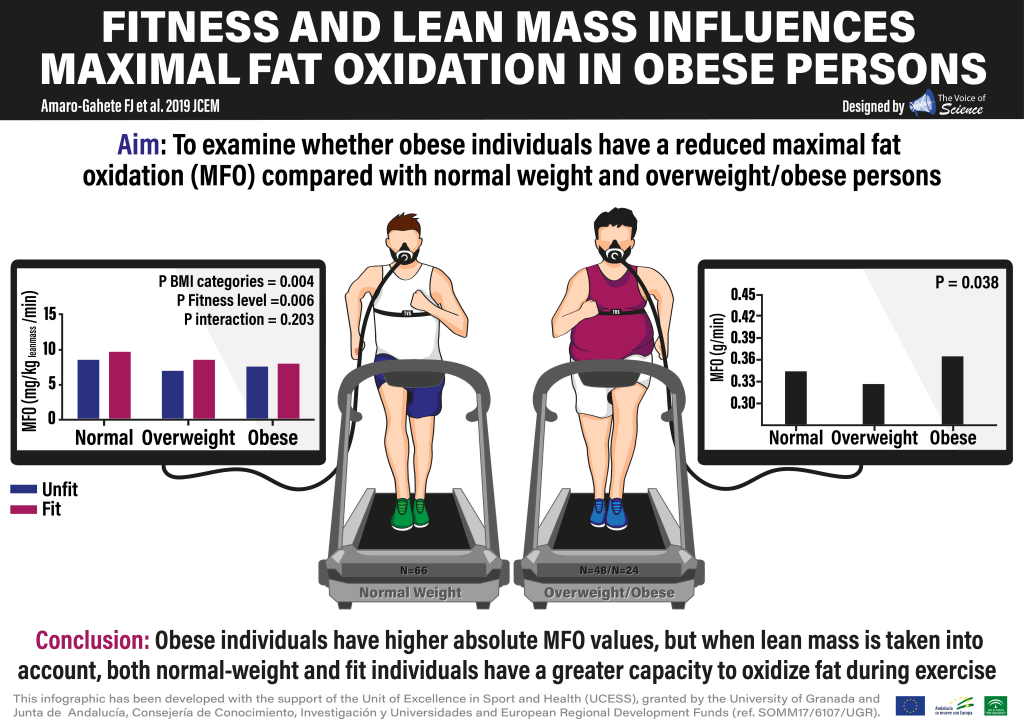
Maximal fat oxidation during exercise is considered a potential marker of metabolic flexibility during exercise.
People with obesity suffer from metabolic inflexibility. However, it seems that those individuals with high levels of cardiorespiratory fitness appear to be relatively protected from this metabolic inflexibility.
Obesity is a major public health problem, and one of the most important risk factors for mortality. Traditionally, obese persons have been thought to suffer from metabolic inflexibility, which is characterized by reduced fat oxidation by the skeletal muscles under fasting conditions and in the post-prandial state. The results obtained by a recent research article published in “The Journal of Clinical Endocrinology and Metabolism” showed that “obese subjects present lower maximal fat oxidation during exercise than their normal-weight counterparts”.
“However, individuals with obesity who present higher levels of cardiorespiratory fitness also showed greater levels of maximal fat oxidation during exercise. Cardiorespiratory fitness can be therefore considered as a protective cardiometabolic factor in obese subjects”, describes Jonatan R. Ruiz, head of the PROFITH research group, University of Granada.
The authors of this publication, who work at the University of Castilla-La Mancha, in addition to the University of Granada, highlight the importance of promoting exercise interventions to improve both metabolic flexibility and cardiorespiratory fitness levels as a potential treatment of obesity.
This research article is signed by Drs. Francisco J. Amaro-Gahete and Guillermo Sánchez-Delgado, in addition to the aforementioned Dr. Jonatan R. Ruiz. Along with them, Ignacio Ara Rollo of the University of Castilla-La Mancha has also participated in this contribution.



